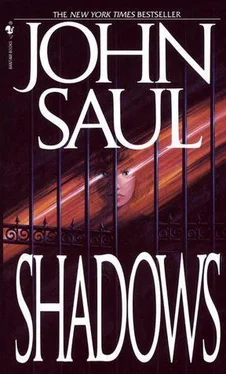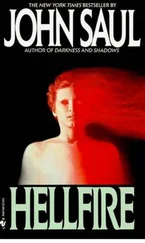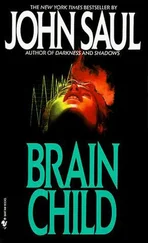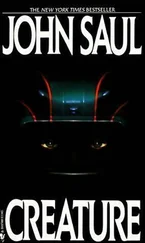“No, he wasn’t. Everybody always laughs at me when I try to play some stupid game. And if they don’t laugh at me, they yell at me. Just because I’m no good at it.”
“Who said you were no good?” Corners countered.
“Besides, being good at things like volleyball doesn’t count for much around here. As you said, it’s only a game.”
Josh scowled deeply. “I said it was a stupid game, and it is!”
“Well, it is if you get upset about it,” Steve Conners agreed. “In fact, if you get upset about it, it sort of stops being a game at all, doesn’t it? I mean, games are supposed to be fun. It doesn’t really matter who wins.”
“But everybody cares who wins,” Josh replied.
“Do you?”
Josh cocked his head, looking up at the teacher. “I–I don’t know.”
Steve Conners’s eyes widened in mock surprise. “What? There’s something you don’t know? Maybe they made a mistake after all. You sure you’re in the right place? All you kids are supposed to know practically everything.” The bantering tone left Conners’s voice. “Look, Josh, I know things haven’t been going too well for you lately. And I’m really sorry everyone laughed at you. Maybe they shouldn’t have. But give them a chance, okay? Don’t forget, they’ve all had exactly the same kinds of problems you’ve had. And believe me, they don’t care any more about volleyball than you do.”
Josh stared up at the teacher. “But at home—” he began, doggedly refusing to understand Conners’s point.
“At home things are different. Which is why you’re here, not there. Now what do you say you just come and watch the game? If you want to play some more, fine. If you don’t, that’s fine, too.”
Without waiting for Josh to answer, Steve gently drew the boy to his feet and started back down the beach, his hand draped over Josh’s shoulder.
As they drew closer to the game, Josh saw that what Steve had told him was true — though the kids were playing hard, doing their best to get the ball over the net, only two or three of them were any good at it. Most of them, like him, missed at least half their shots entirely, and most of the shots that connected went wild.
Catching sight of him, Amy waved wildly. “You should have seen it, Josh!” she yelled. “I did it! I got the ball over the net! And it was only my third try!”
Before he realized what had happened, Josh found himself back in the game. The next time his turn to serve came up, he, too, managed to get the ball over the net.
Of course, it didn’t go over until the fourth try, which wasn’t as good as Amy had done, but on the third try, when he’d fallen over backward trying to hit the ball after a bad toss, he’d laughed as hard as everyone else.
Maybe, he decided, volleyball wasn’t such a bad game after all.
At least not the way they played it at the Academy.
By ten o’clock, when the picnic was breaking up, and Josh was helping the other kids throw sand on the dying fire, Brenda was sure he’d made up his mind. She watched him all evening, as he’d sat next to Amy, munching on hot dogs, then joined the circle of kids around the fire to listen to Jeff Aldrich tell the Academy’s favorite ghost story — a terrifying tale about old Mr. Barrington, whose specter still roamed the darkened house at night, seeking vengeance for the death of a child who may or may not have ever actually existed.
“No one knows how old Mr. Barrington’s son was when he died,” Jeff told the circle of entranced children. “But they say something was wrong with the boy, and Mr. Barrington kept him hidden somewhere in the house. But no one knows where, and no one knows what was wrong with the boy. But when Mr. Barrington got really old, he got really strange, too.” Jeff’s voice dropped slightly, taking on a mysterious tone as he retold the old legend of the Academy’s mansion …
Eustace Barrington stepped off the elevator, blinking in the bright sunlight that flooded through the large windows in the cupola. He closed the mahogany bookcase that concealed the elevator’s doors, then went to the window and gazed out .
He’d been right to build the house here, right to perch it high on the hillside, so that from this small apartment on the roof he could see not only the mountains behind the house, but the sea as well, sparkling in the distance .
See all the things his son could no longer see .
Or did not choose to see .
When he’d begun building the house, Eustace Barrington had already known there was something wrong with the boy, something that made him different from any other child Barrington had ever known .
His son didn’t talk like other children, didn’t act like them. Instead, he kept to himself, seeming more interested in what was going on within his own mind than in the outside world .
Finally, when the boy had stopped talking altogether, Eustace Barrington had taken his son to the family doctor, then to every other doctor he could find .
All of them had shaken their heads .
“Just slow,” one of them had said .
“He’ll grow out of it,” another had assured him .
“Perhaps you should put him somewhere,” someone else had suggested, and given him the name of a place on the other side of the country, where he’d never have to see his son again .
Instead, Eustace Barrington had built this house, and constructed a special place for his son deep beneath the basement, accessible only by the elevator from his private suite, a suite that jutted up above the roof line of the rest of the house, allowing all the light that could never reach the chambers below the basement to fill these rooms, as if by compensating for his son’s lack of sunlight, he could ease the pain he felt for all these years .
Still, Eustace Barrington was certain he’d done the right thing, for when his son had finally withdrawn so deeply into himself that he no longer responded to the outside world, and when the Barringtons’ friends had begun to talk about the boy as if he were some kind of inanimate object to be disposed of unless a reason for keeping him could be found, Eustace had brought him here .
He’d moved the boy into the subterranean chambers, which he’d furnished with far more care than he’d given to the rest of the house, making sure his son would be comfortable, and have everything he could possibly need, and couldn’t accidentally hurt himself .
The main room contained the boy’s bed, and enough furniture so the two of them could be comfortable while the man sat with the boy, and talked to him, disregarding the near certainty that his son no longer heard him .
In another room was a dining table and two chairs, where he took his son’s meals every day, and ate with him .
He took them himself. Never a servant, because he did not trust servants .
No one but Eustace Barrington knew the boy was there at all, for he had decided long ago that it would be better for this child to be kept at home, where he would be loved and left to whatever mystic thoughts he may have, than to be turned over to the care of strangers who would neither love, nor understand him .
His son, Eustace Barrington was convinced, was a genius .
Though the boy never spoke except to mutter numbers, and seemed to be both blind and deaf, Barrington was still certain that his son’s mind was special, not insane .
Sometimes, when he could make out the numbers his son spoke, he wrote them down, and spent hours alone at his desk, working out the relationships of the numbers to each other .
What his son was apparently calculating in his head in seconds, it took Eustace Barrington hours to work out on paper .
Читать дальше












